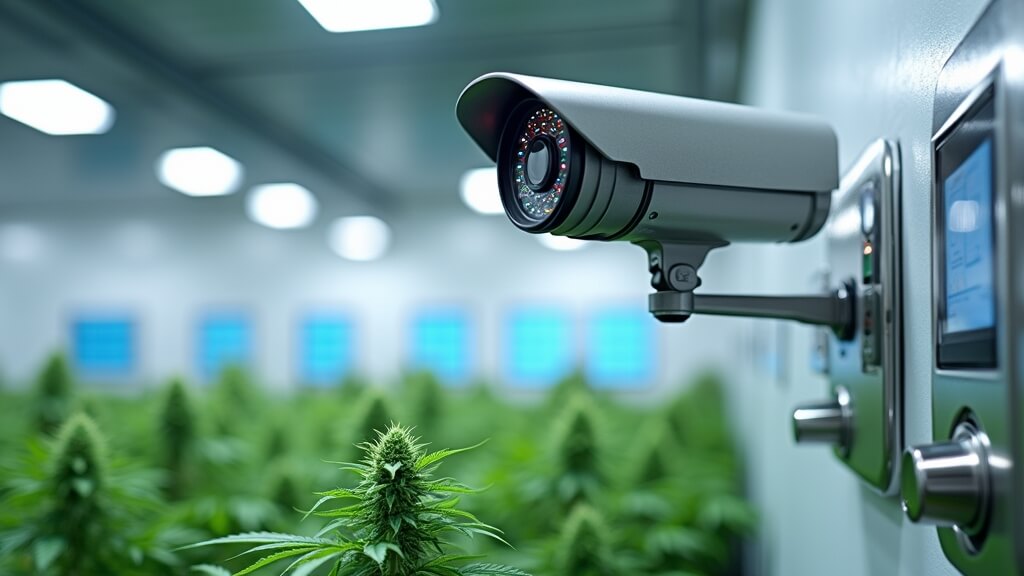The cannabis industry’s intricate regulatory framework demands specialized HR technology solutions that traditional platforms cannot adequately address. Cannabis businesses face unique challenges including Section 280E compliance, state-specific licensing requirements, and stringent employee background checks that require purpose-built systems. Standard HR software often lacks the cannabis-specific features necessary for tracking regulatory changes, managing complex payroll deductions, and maintaining audit-ready documentation. These operational gaps create significant compliance risks that could jeopardize business licenses and expose companies to costly penalties.
Digital HR Platform Implementation for Cannabis Operations

While traditional HR systems often fall short in addressing the complex regulatory landscape of cannabis operations, specialized digital platforms have emerged to bridge this critical gap.
Cannabis-specific HR platforms like Würk, Hybrid Payroll, UZIO, and KayaPush offer compliance-driven configurations that accommodate state-by-state variations in cannabis laws and tax structures. These tailored systems bundle HR, payroll, timekeeping, and benefits administration into unified platforms, reducing complexity and eliminating data silos that plague fragmented solutions. Many platforms now offer features to help businesses navigate IRS Section 280E compliance requirements, which prohibits cannabis businesses from deducting ordinary business expenses.
Implementation follows a white-glove model, utilizing dedicated specialists and cannabis HR experts to guarantee compliant setup and seamless data migration. These platforms significantly enhance overall productivity by automating routine HR processes and reducing the manual workload that typically burdens cannabis operations. The systems provide essential audit trail capabilities for maintaining comprehensive documentation required by regulatory agencies.
Cannabis HR platforms deliver white-glove implementation through dedicated specialists, ensuring compliant setup and seamless data migration for operators.
Modular integration capabilities allow these platforms to connect with dispensary POS systems, scheduling software, and performance management tools. Fast onboarding processes leverage digital document collection and e-signature workflows, while thorough employee self-service portals streamline profile management and benefits elections for distributed cannabis workforces.
AI-Powered Compliance Tracking and Applicant Management Systems
Cannabis businesses leveraging specialized HR platforms increasingly turn to artificial intelligence to navigate the industry’s intricate compliance requirements and streamline talent acquisition processes.
AI compliance tools can organize over 100,000 pages of state-level cannabis regulations, providing instant access to verified regulatory information. These systems continuously monitor regulatory changes, automatically updating workflows to maintain compliance alignment. Many solutions now integrate with seed-to-sale tracking systems like Metrc to ensure complete regulatory visibility throughout the supply chain.
Modern applicant management systems employ AI for automated resume parsing, skills matching, and red-flag identification during candidate screening. The technology cross-references applicant data with compliance databases, ensuring work eligibility while flagging license ineligibility or missing certifications. Advanced platforms integrate with comprehensive cannabis data across all U.S. markets to provide organized regulatory information for informed hiring decisions.
Real-time monitoring capabilities analyze operational data to trigger violation alerts, while automated compliance checks adapt instantly as new regulations publish, markedly reducing risks from fines or license loss. AI algorithms can forecast disease outbreaks in cultivation facilities, enabling HR teams to proactively schedule additional staff or specialized personnel when plant health issues are predicted.
Remote Onboarding Technology and Workforce Integration Tools

As cannabis businesses increasingly adopt remote work models, digital onboarding platforms have emerged as essential tools for maintaining regulatory compliance while efficiently integrating new employees into the workforce.
These systems validate state-issued permits, automate mandatory forms like W-4 and I-9 documentation, and conduct integrated background checks that meet local cannabis regulations. Task notifications drive completion rates while storing document images for compliance audits.
Remote benefits enrollment platforms enable direct deposit setup and company asset allocation through centralized portals.
Learning management systems deliver role-specific cannabis training with certification tracking, while automated reminders improve policy acknowledgment completion rates. Orientation scheduling with assigned managers ensures new hires receive structured guidance throughout their initial training period.
Mobile-enabled time tracking captures accurate work hours across multiple sites, supporting 280E compliance requirements. Standardized training protocols ensure uniformity across all locations and positions within cannabis organizations.
This streamlined approach reduces turnover by creating professional onboarding experiences that maintain operational standards.
Implementing cultural fit assessments during the onboarding process helps address the industry’s uniquely high turnover rates and ensures alignment with both professional standards and cannabis values.
Safety Management Software for Industry-Specific Risk Mitigation
The complex regulatory landscape surrounding cannabis operations demands sophisticated safety management platforms that address unique industry hazards while maintaining strict compliance standards.
These integrated systems provide instant incident reporting capabilities, capturing near misses and safety events through mobile platforms that enable immediate response. Detailed documentation includes qualification records, training completion, and regulatory correspondence for all safety-sensitive positions.
Automated compliance tools guarantee adherence to GMP and federal regulations while preventing unqualified personnel from occupying critical roles. Advanced platforms implement lot-level traceability to ensure complete product accountability throughout the manufacturing process. Qualification-based scheduling ensures only certified employees are assigned to safety-sensitive positions such as cultivation technicians and extraction specialists.
Risk assessment platforms manage Corrective and Preventive Actions, prioritizing workplace hazards specific to cannabis facilities. Equipment maintenance software tracks calibration histories and environmental permits, while centralized dashboards provide real-time visibility into facility-wide safety metrics, supporting audit readiness and regulatory compliance. These systems also facilitate the regular audits that cannabis businesses need to maintain accuracy in their financial records and avoid substantial penalties under Section 280E.
E-Learning Platforms for Regulatory Training and Skills Development

Effective safety protocols require knowledgeable employees who understand both operational procedures and regulatory requirements, making thorough training programs a cornerstone of successful cannabis operations.
E-learning platforms like ProCanna and MJ Platform centralize standard operating procedures, deliver state-specific regulatory content, and track legislative updates in real-time. These systems reduce violation risks through automated rule alerts and compliance-focused courses covering track-and-trace systems, money laundering prevention, and product waste minimization.
Training modules combine video content with interactive quizzes, improving knowledge retention while enabling self-paced learning for new hires. Platforms offer reporting features that monitor employee completion rates, supporting audit readiness and regulatory documentation. These platforms enable digital sending and tracking of compliance training, ensuring documented employee education that meets state regulatory requirements.
Certification programs provide industry-recognized credentials such as Certified Commercial Cannabis Professional, enhancing employability while ensuring workforce competency meets evolving compliance standards. Modern training solutions provide mobile device access, enabling retail employees to complete education modules on smartphones and tablets for greater flexibility and accessibility. Dedicated HR departments are particularly valuable for implementing these training systems, as employee misclassification can result in substantial fines exceeding $60,000 for cannabis businesses.
HR Analytics and Performance Monitoring Solutions
Cannabis businesses generate vast amounts of employee data that require sophisticated analysis to maintain regulatory compliance and optimize workforce performance.
HR analytics tools provide real-time reporting dashboards that centralize attendance, productivity, and workforce trends while facilitating automated analysis of labor expenses, turnover rates, and demographic patterns. These systems enable custom reporting for compliance-specific metrics, including license status and certification renewals.
Performance monitoring capabilities track key performance indicators such as attendance rates and shift adherence through automated review cycles. Cloud-based storage ensures all employee documents and transaction histories are securely maintained with role-based access control.
Centralized dashboards highlight engagement metrics and absenteeism patterns, while system alerts signal underperformance or compliance risks. The integration of audit trails guarantees every transaction is recorded, supporting regulatory reporting requirements and enabling fast document retrieval during inspections. These data-driven insights support strategic decision-making by providing comprehensive analytics that help cannabis operators optimize their workforce management processes. Modern HR systems can help cannabis retailers adapt to the shifting consumer demographics, with younger consumers now accounting for 62.8% of all U.S. cannabis sales.









